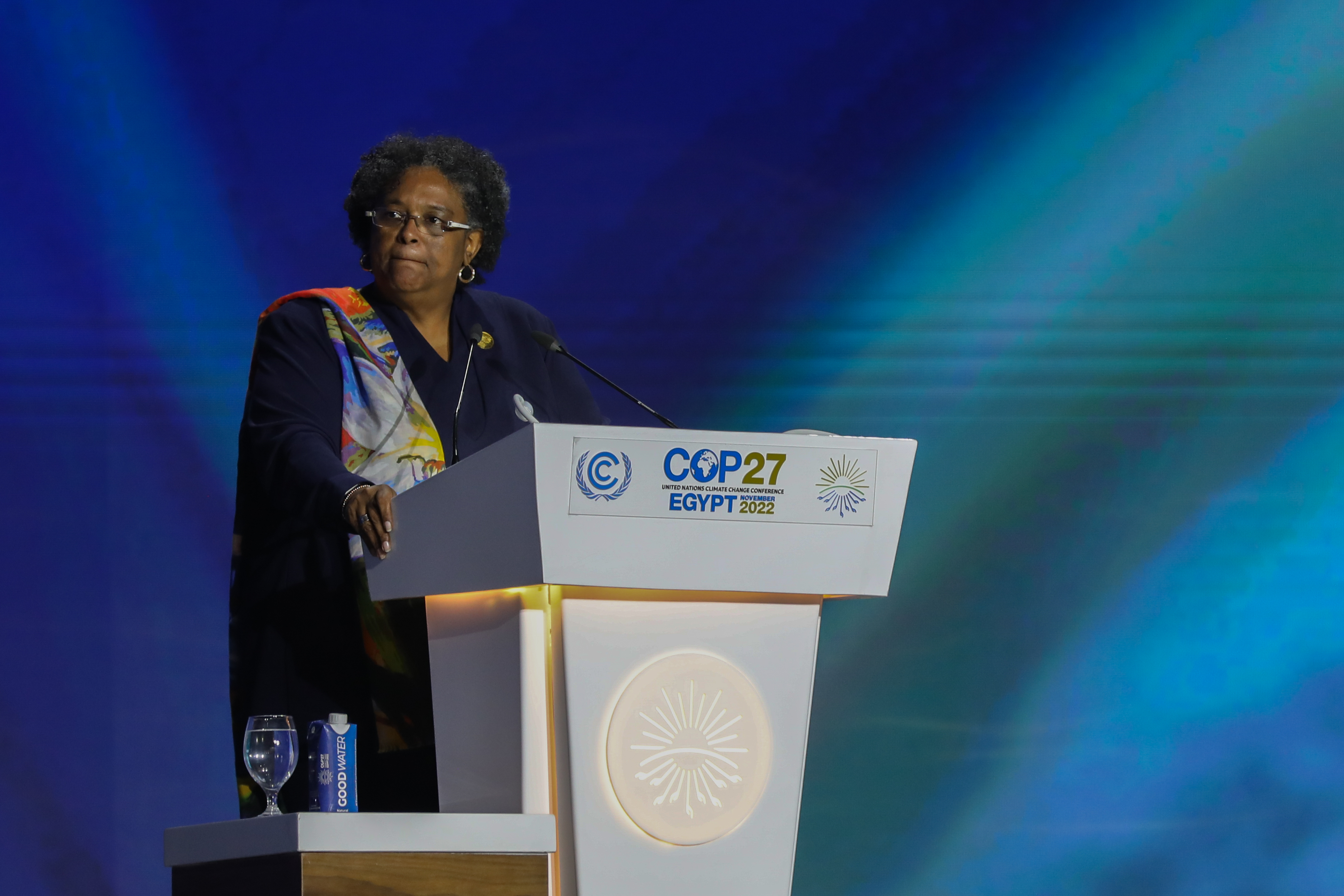The Bridgetown Initiative
A voice from the Caribbean island of Barbados offers a plan to save the broken global financial system.
A voice from the Caribbean island of Barbados offers a plan to save the broken global financial system. The following article was published in the September-October 2023 issue of NewsNotes.
The Bridgetown Initiative—named after the capital city of the climate-vulnerable island nation of Barbados— looks to be a way forward for global finance reform to address three intersecting global crises (debt, climate, and inflation).
Representing the concerns of countries in Latin America and the Caribbean, Prime Minister of Barbados Mia Mottley first presented the Bridgetown Initiative at the UN Climate Talks COP27 in Egypt in 2022, where it was praised by leaders of the IMF, World Bank and France. Specifically, the initiative creates more sources from which developing countries can borrow to mitigate emissions that contribute to climate change and build resistance to its effects.
Climate disasters have escalated as the world passed the hottest year on record this past July. The impacts of climate change have fallen disproportionally upon the world’s poorest nations, who have contributed the least to the cause of climate change, that is – the burning of fossil fuels.
In addition, many poorer nations are drowning in debt and facing rising costs of food and fuel. These nations require several trillion dollars to invest in low-carbon energy and build resistance to climate threats, a sum that neither wealthy nations nor private businesses are ready to provide.
The Bridgetown Initiative calls for funds to flow where they are most needed and, thus, help cut global emissions. With that support, the most vulnerable nations will also have more resources to invest in quality education, better health care, cleaner energy, and stronger infrastructure, all of which are key to ending extreme poverty.
Development finance today is not designed to respond to current global challenges such as climate change, leaving vulnerable countries in need of a new plan. If anything, the debt created by international financial institutions has served to reinforce poverty in countries that are hit the hardest by climate change. Prime Minister Mottley minced no words in pointing to the ongoing legacy of colonialism that is reflected in the manner in which these institutions structure debt. While wealthier countries borrow at interest rates between 1 to 4 percent, rates for poor countries hovers at around 14 percent.
The Bridgetown Initiative claims that the world rose to the occasion during Covid and can do so again. With a few revisions over the last year, the current version of the initiative proposes six key actions to reform global financial architecture:
- Provide immediate liquidity support including rechannelling at least $100 billion of Special Drawing Rights (the IMF’s emergency currency last issued during the covid pandemic) that were left unused by wealthy nations.
- Restore debt sustainability today and in the long-term and support countries in restructuring their debt with long-term low interest rates.
- Dramatically increase official sector development lending to reach $500 billion annual stimulus for investment in the UN’s 17 Sustainable Development Goals (SDGs).
- Mobilize more than $1.5 trillion per year of private sector investment in the green transformation.
- Transform the governance of international financial institutions to make them more representative, equitable and inclusive.
- Create an international trade system that supports global green and just transformations.
The Bridgetown Initiative has been gathering attention at many global forums. It was the focus of the New Global Financial Pact in Paris convened by President Emmanuel Macron in June 2023. At the gathering, Kenya’s President William Ruto stated “We need a new financial architecture, where governance, where power is not in the hands of a few people.”
The Bridgetown Initiative will be debated at the World Bank and IMF Annual Meetings in Marrakech in October, and the UN Climate Talks COP28 in Dubai in November.
US Treasury Secretary Janet Yellen added her voice to the need for reform, calling on the World Bank and other multilateral development banks to “evolve” to address climate change: “If the global community benefits from investments in climate, then the global community should help bear the cost.”
Faith in action:
Tell the World Bank that you support global finance reforms like the Bridgetown Initiative to protect the planet https://mogc.info/GC-POPCE
Photo of Mia Mottley, Prime Minister of Barbados, at COP27 where she founded the Bridgetown Initiative, courtesy of the UNFCCC via Flickr

